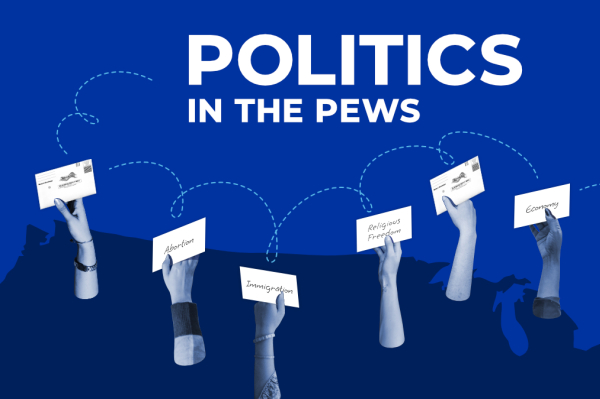Evangelical Divide Widens along Generational Line, Says Expert
Younger evangelicals are increasingly feeling disconnected from the older generation when it comes to politics, said an expert on Monday.
Michael Gerson, a former President George W. Bush speechwriter and advisor who is now with the Council on Foreign Relations, said that while young born-again voters continue to carry on the evangelical mantle of pro-life champion, they are markedly different from "traditional" evangelical institutions, according to Time magazine's "Swampland."
These young evangelicals see the pro-life cause as a social justice issue moreso than simply a moral value. They also see a deep connection between their faith and global social justice issues such as Darfur, global warming, and poverty, which they put on the same level of priority as abortion.
The former top Bush aide offered evidence for a possible coalition between these young evangelicals and the Democratic Party, which has long campaigned on social justice issues.
Gerson said Democrats polled about America's role in global social justice issues showed the strongest support for active U.S. participation among college-educated voters, and the least support among blue collar workers.
On the Republican Party side, the most noticeable divide on the question was along religious lines. Evangelicals were for America taking a strong, active role, while secular, libertarian conservatives were against it.
In other words, young evangelicals would be among the most likely to be for an active U.S. role in the world on social justice issues, which could make them attracted to the Democratic Party – a strong advocate on such issues.
Mike Gerson's analysis was among the first presentations at the Pew Forum's biannual conference on religion and public life, which kicked-off on Monday in Key West, Fla.
Also on Monday, William Galston of the Brookings Institution talked about Democratic presidential candidate Hillary Clinton and her support base of Catholic voters.
Galston spoke of Clinton's disproportionate support among white Catholic voters and offered a few theories on why Protestants leaned towards Obama and Catholics to Clinton.
Protestants, he said, have a liking to the idea of "reform," which Obama has promised and an idea which he has built his campaign on.
"Catholics are generally on the side of the 'the regulars,'" Galston noted.
Clinton's focus on "bread and butter" issues also appeals to Catholics' concern with social justice, he offered. And her older age may appeal to Catholics who tend to associate age with leadership.
The Pew Forum on Religion & Public Life's "The Faith Angle" conference ends Tuesday.





















